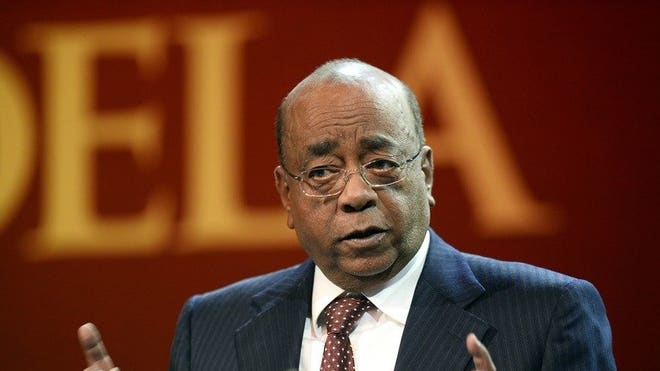Sudanese-British
billionaire entrepreneur Mo Ibrahim recently delivered a speech during the 11th
Nelson Mandela Annual Lecture on August 17, 2013, at the summit dedicated to
the global peace icon….

In your lecture you
asked, without mentioning Robert Mugabe by name, why an African country had
just re-elected an 89-year-old as its president. Isn't it more worrying that
the entire Southern African region has hailed his victory?
The
problem is that we have a lopsided and superficial view about elections. Elections
are a long process, starting from the people's freedom to form parties, their
freedom of association and expression, to the production of a credible register
of voters and the voting process itself.
But
the world just focuses on the day of elections. [Former US president] Jimmy
Carter arrives, the African Union sends observers, all those wonderful
gentlemen go to the polling station and if there is nobody actually beating up
the people we say: Oh, wonderful election. That is a very limited view of elections.
In our [Mo Ibrahim Foundation] index on governance, we have stopped using the
word "democracy"; we say "participation" because the word
democracy is so abused. People have even won elections before polling day.
There are few fair and
good elections in Africa. Is it time for the continent to come up with a new
recipe for elections?
We
have a major development on the continent: a tsunami of young people coming
forward. People of our age are like dinosaurs, extinct. The young people coming
forward are utterly different. They are armed with new communications gadgets,
they talk to each other nonstop, it's impossible to keep information secret
from them and that will include information about elections. I firmly believe
we are moving forward to a much more open and well-connected society that will
end a lot of corruption.
You are a British
citizen and reside in London but you are originally from Sudan and you know
Egypt well. If you had a magic wand, what would you do to solve the Egyptian
crisis?
This
is a terrible situation because people are unable to have a healthy dialogue.
To be honest, [deposed president] Mohamed Morsi wasted an amazing opportunity
to establish a new democratic era in Egypt. You have to remember he got only
25%-26% of the votes in the first round and in the rerun he needed the support
of liberals, who backed him with some conditions, which he agreed to. He agreed
to three vice-presidents (one Christian, one a woman and the third from the
Muslim Brotherhood), he agreed to appoint an inclusive government, and he
agreed to write a constitution with everyone.
Well,
he reneged on all these promises and that is a problem. The Brotherhood decided
that with 51% of the vote they could do anything they wanted and that is a very
poor understanding of democracy. [Former president] Hosni Mubarak was elected
but was removed by the military, and Morsi is now also removed by the military.
This is a really unfortunate situation. The only way out is dialogue and it
doesn't look like that is going to happen soon.
Your 2014 annual prize
for African leadership, worth US$5m, is due to be announced in October. But in
three of the first six years of its existence, the judges decided there was no
ex-president worthy of receiving it. Isn't it time to rethink the award?
No.
The prize plays an important part in what we do because it focuses everybody's
mind about the issue of leadership and governance. The prize actually costs us
much less money than the
governance index. But everyone knows much more about the prize than the index.
Why? Because the prize is sexy, it is money and about presidents and so on.
We
say as long as this prize is helping to draw attention to good leadership, we
are happy with that. From the outset we said we didn't expect to offer the
prize every year, because it's not a pension. It's a prize for leaders who
really came and changed things, with clean hands, and who left on time. We
don't have many people in Africa who did that. So should we shoot the
messenger?
Culled:
Financial Mail
No comments:
Post a Comment
Feel free to share your views :-)